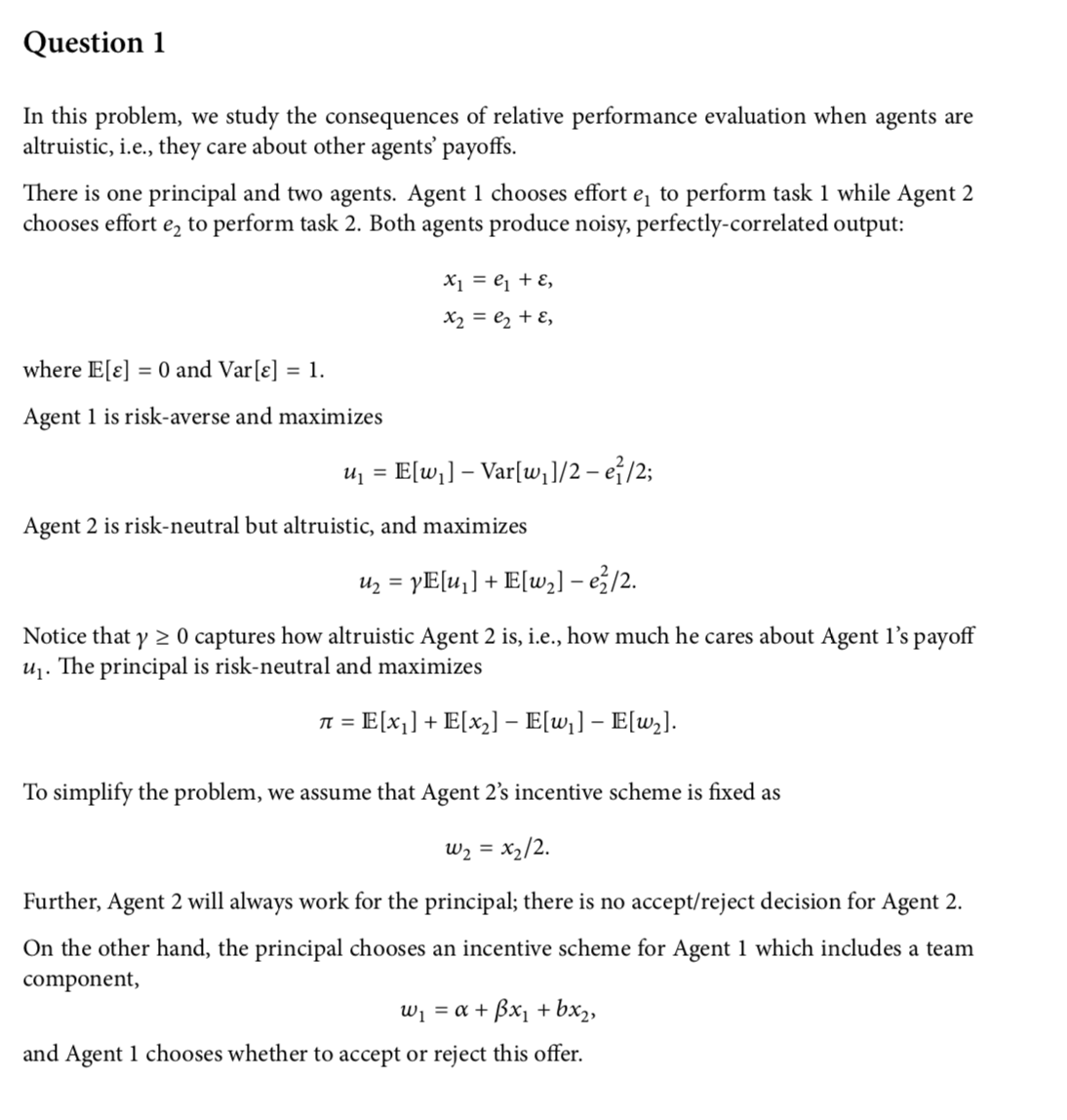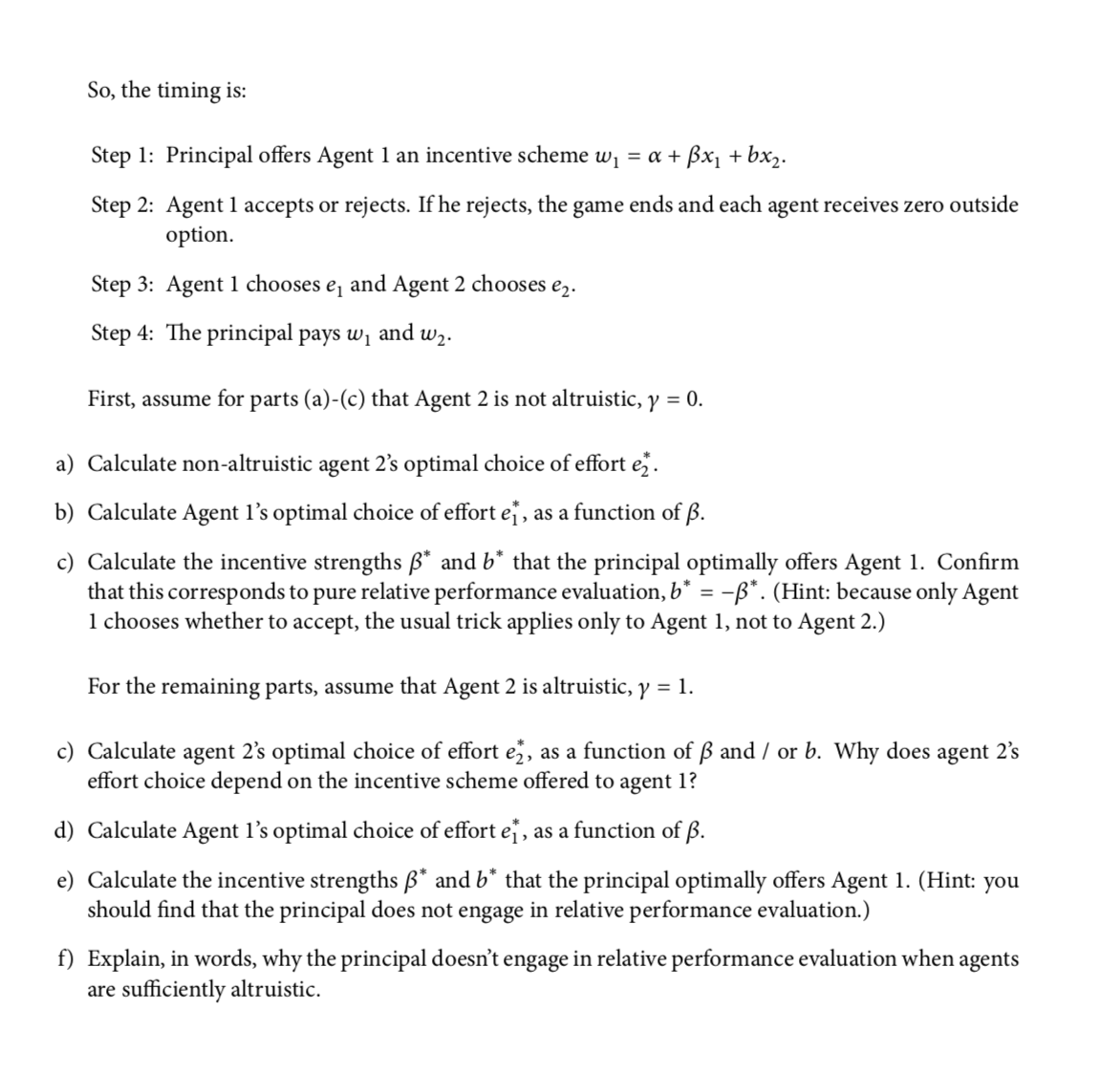Question 1 In this problem, we study the consequences of relative performance evaluation when agents are altruistic, i.e., they care about other agents' payoffs. There is one principal and two agents. Agent 1 chooses effort (21 to perform task 1 while Agent 2 chooses effort 92 to perform task 2. Both agents produce noisy, perfectly-correlated output: x1=el+, x2 = :22 + e, where ]E[s] = 0 and Var[s] = 1. Agent 1 is risk-averse and maximizes u] = ]E[w1] Var[w1]/2 ell/2; Agent 2 is risk-neutral but altruistic, and maximizes u2 = y]E[u1] + ]E[w2] e312. Notice that y 2 0 captures how altruistic Agent 2 is, i.e., how much he cares about Agent 1's payoff u]. The principal is risk-neutral and maximizes 11' = ]E[x1] + ]E[x2] ]E[w1] ]E[w2]. To simplify the problem, we assume that Agent 2's incentive scheme is xed as ")2 = 362/2. Further, Agent 2 will always work for the principal; there is no acceptlreject decision for Agent 2. On the other hand, the principal chooses an incentive scheme for Agent 1 which includes a team component, to] = a + xl + bxz, and Agent 1 chooses whether to accept or reject this offer. So, the timing is: Step 1: Principal offers Agent 1 an incentive scheme u)1 = a: + [3x1 + bx}. Step 2: Agent 1 accepts or rejects. If he rejects, the game ends and each agent receives zero outside option. Step 3: Agent 1 chooses e] and Agent 2 chooses 62. Step 4: The principal pays u:1 and wz. First, assume for parts (a)-(c) that Agent 2 is not altruistic, y = 0. a) Calculate non-altruistic agent 2's optimal choice of effort a: . 1)) Calculate Agent 1's optimal choice of effort e}, as a function of [3. c) Calculate the incentive strengths [3' and b' that the principal optimally offers Agent 1. Conrm that this corresponds to pure relative performance evaluation, b' = 43' . (Hint: because only Agent 1 chooses whether to accept, the usual trick applies only to Agent 1, not to Agent 2.) For the remaining parts, assume that Agent 2 is altruistic, y = 1. c) Calculate agent 2's optimal choice of effort 6;, as a function of f3 and i or b. Why does agent 2's effort choice depend on the incentive scheme offered to agent 1? d) Calculate Agent 1's optimal choice of effort e?, as a function of [3. e) Calculate the incentive strengths [3* and b' that the principal optimally offers Agent 1. (Hint: you should nd that the principal does not engage in relative performance evaluation.) f) Explain, in words, why the principal doesn't engage in relative performance evaluation when agents are sufciently altruistic








